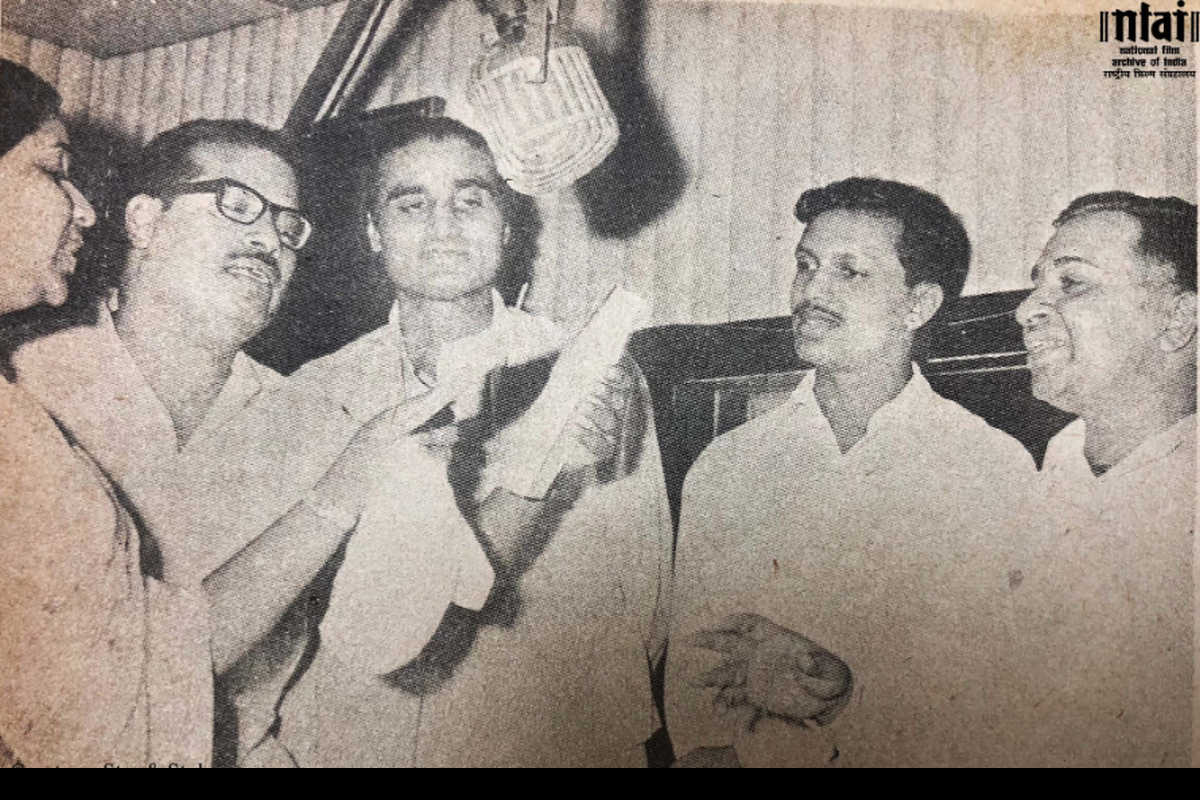Words that have become proverbial, a song that continues to charm music lovers across generations and the singer who has set benchmarks in playback music that are hard to surpass. When one thinks of the male golden voices of the 50s, 60s and 70s, Manna Dey along with his contemporaries Mohd Rafi, Kishore Kumar, Mukesh, Hemant Kumar and Talat Mahmood is one of the sextet who took Hindi film music to the heights of excellence. Such was his impact that music directors created songs keeping him in mind, with the trust that only he could deliver those intricate murkis with ease. Manna Dey’s songs became superhits not only because of the remarkable music but also because of the ease with which he sang those difficult classical compositions. He brought the elite “classical” music into the popular domain, making these songs hummable by anyone who loved to croon. Dey accompanied his uncle in 1942 on a visit to Mumbai. There he first worked as an assistant to his uncle and then under Sachin Dev Burman, He started his career in playback singing with the film ‘Tamanna’ in 1943. His uncle Krishna Chandra De set the musical score and Manna De had to sing a duet with Suraiya. The song ‘sur na saje kiya gaon mein’ was an instant hit.
Born in Calcutta in 1919, De went on to sing over 3,500 songs in Hindi, Bengali, Gujarati, Marathi, Malayalam, Kannada and Assamese films before quitting movies in the 1990s. His last song was ‘Hamari hi mutthi mein’ for the 1991 film ‘Prahaar’. In 1950, ‘Mashal’ was the second film where Dey got the opportunity to sing a solo ‘Upar gagan vishal’, a melody created by Sachin Dev Burman. In 1952, De sang both for a Bengali and a Marathi film of the same name and storyline, Amar Bhupali, and established himself as a booming Bengali playback singer that in years. His popular tracks include Poocho Na Kaise Maine (Meri Surat Teri Aankhen), Ae Meri Zohra Jabeen (Waqt), Zindagi Kaisi Hai Paheli (Anand), Yeh Dosti (Sholay) and Ek Chatur Naar (Padosan) and Laga Chunari Mein Daag (Dil Hi Toh Hai) and Yeh Raat Bheegi Bheegi (Chori Chori). which took him to greater heights.
Manna Dey was much in demand for complicated raag-based songs and was once even pitted against his idol Bhimsen Joshi in the film Basant Bahar for “Ketki, Gulab, Juhi” song, an offer he initially refused. Dey who would have turned hundred recently shed his initial reticence and sang it thereby putting another feather in his cap.











